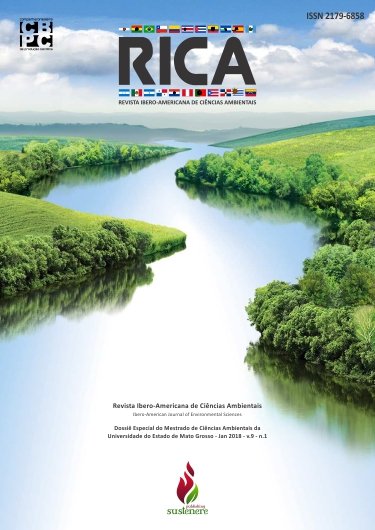Dialogue between knowledges for a social-environmental rationality in north central territory of Mato Grosso: is it a possibility via environmental education?
DOI:
https://doi.org/10.6008/CBPC2179-6858.2018.001.0012Keywords:
Environmental Education, Dialogue between Knowledges, Social-environmental RationalityAbstract
The socio-environmental crisis had its structure established worldwide in the middle of twentieth century due to the consolidation of urban-industrial society and the advances of modern science, which is ruled by applied technical-scientific rationality applied in order to correspond to the the anthropocentric model of domination of nature for capitalist expansion. This global crisis has its local manifestation in the north central territory in the state of Mato Grosso since the expansion of capitalism, which took shape, especially in the 70’s, through the development policies of national integration to the Amazon. The occupation of this space – through public-private colonization that attracted the interest of large national and international groups – changed the territorial dynamics, movement of fauna and flora and also of populations either the ones pre-existing in the territory or the migrant populations in their different situations. This process occurred in a fast and intense way, generating social and environmental imbalances in the land, water, air, biodiversity and preexisting cultures in the territory due to the deep insertion of the Legal Amazon ? as functional region ? in the context of globally structured capitalism, locally perpetuating the effects of the global socio-environmental crisis. This way, this article aims to understand how Environmental Education in the encounter with the dialogue between knowledges and cultures can produce a social-environmental rationality in the north central region of Mato Grosso. Through a bibliographic review, the study revealed that, although there is a fragility of the practices of Environmental Education and/or adoption of punctual and non-contextualized activities ? that does not explain the mercantile and unsustainable relations existing in the current model of society ? when worked in a critical and dialogic way, such a model promotes an expanded understanding of the complex relationships between society and nature. In addition, the Environmental Education in the encounter with the dialogue of scientific knowledges with the knowledges culturally constructed by traditional populations (indigenous and non-indigenous), that are in co-evolution with nature, enables the construction of socio-environmental rationality that subsidizes a science bringing sciences of life, nature and society closer together and has as it basis ethical, democratic, just and ecologically sustainable principles.
Downloads
Downloads
Published
Issue
Section
License
Copyright (c) 2018 Ibero-American Journal of Environmental Sciences

This work is licensed under a Creative Commons Attribution-NonCommercial-NoDerivatives 4.0 International License.
The CBPC - Companhia Brasileira de Produção Científica (Brazil CNPJ: 11.221.422/0001-03) the material rights of the published works. The rights relate to the publication of the work anywhere in the world, including rights to renewals, expansions and dissemination of the contribution, as well as other subsidiary rights. All electronically published works may subsequently be published in printed collections under the coordination of this company and / or its partners. The authors preserve the copyright, but are not allowed to publish the contribution in another medium, printed or digital, in Portuguese or in translation.









